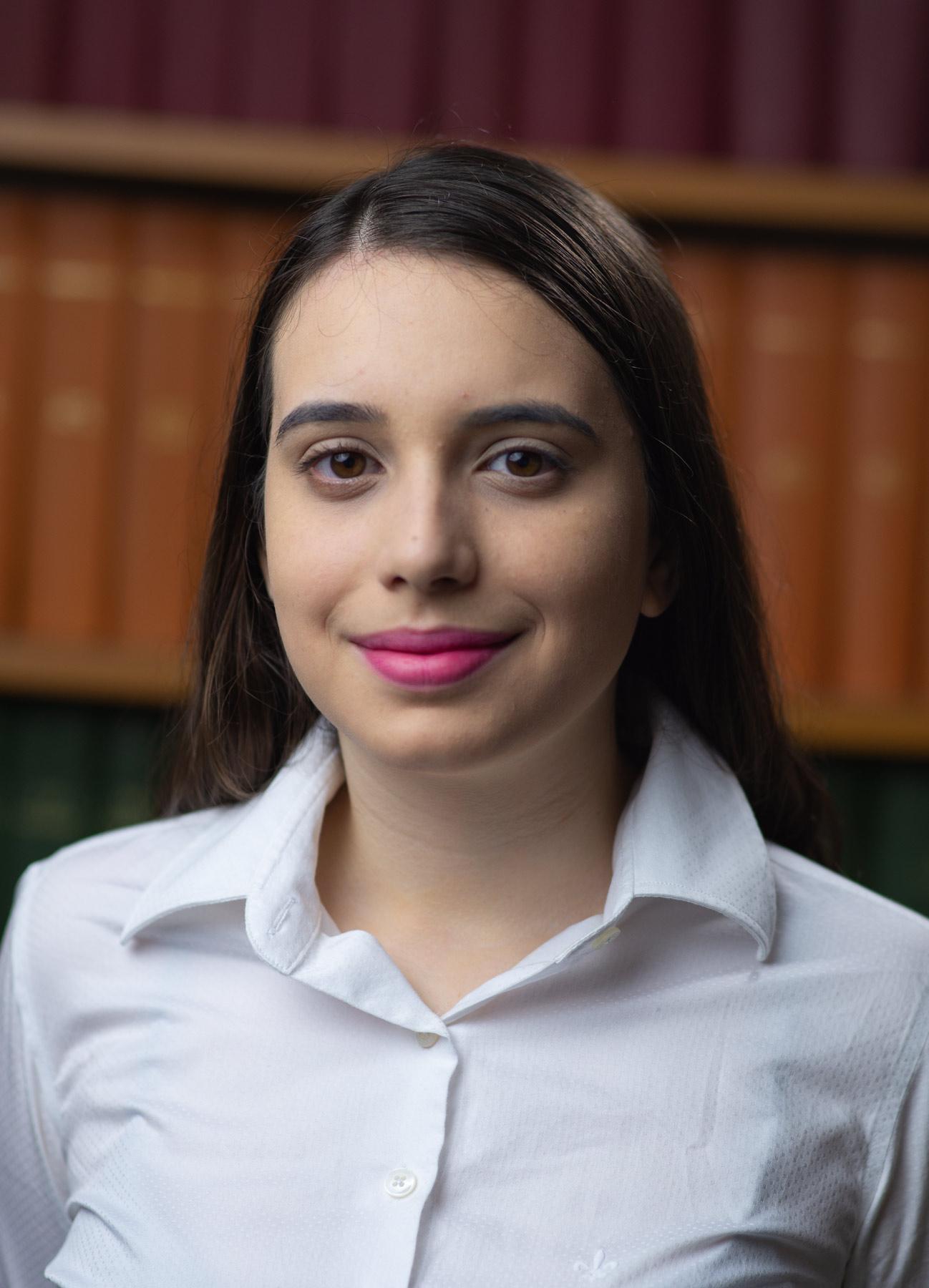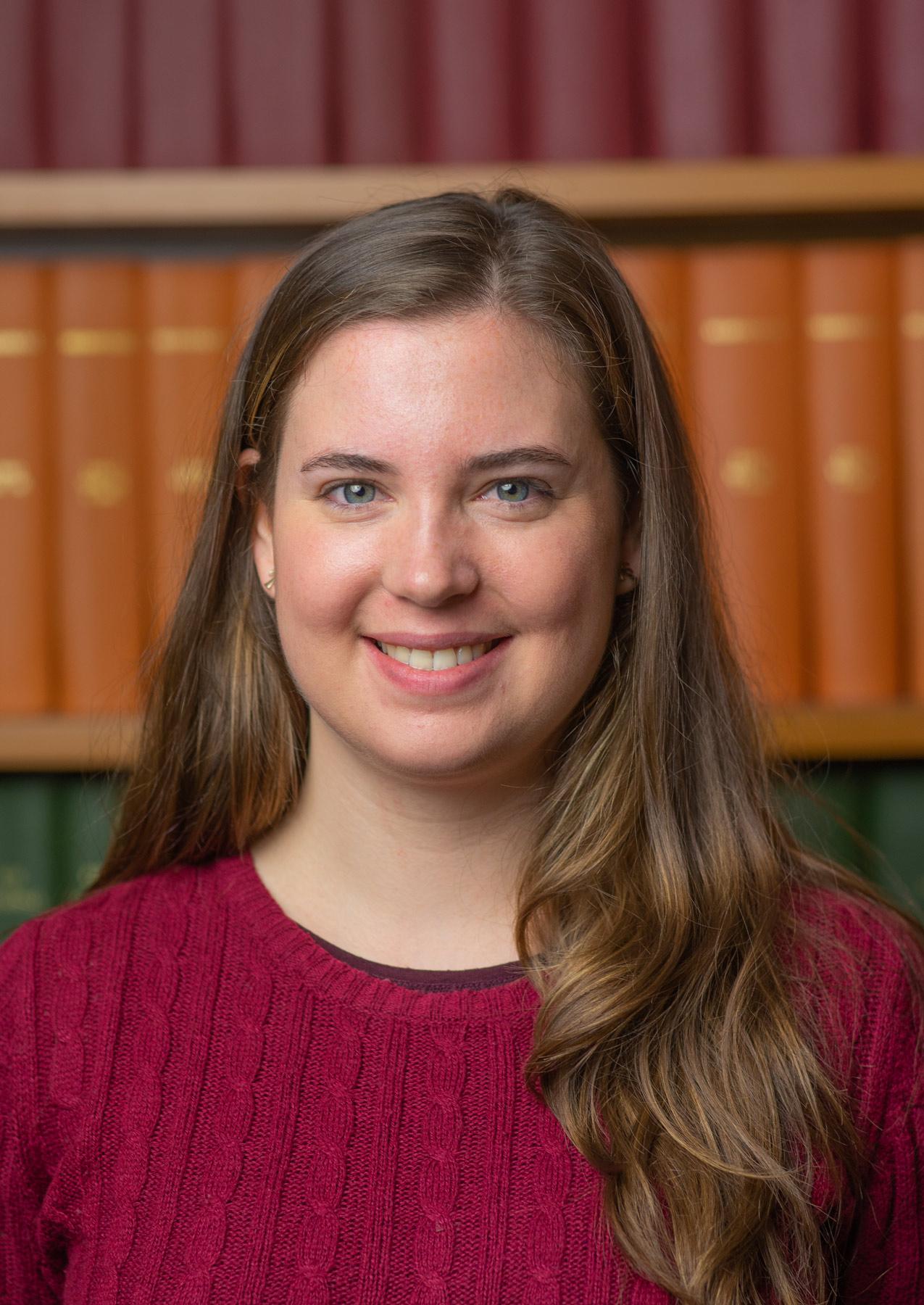
We are pleased to welcome Christoph Wiest to the Unit as a new D.Phil. student, working in the Groups led by Dr Huiling Tan and Professor Peter Brown. Christoph’s research at the Unit will focus on the therapeutic effects of adaptive deep brain stimulation in Parkinson's disease. In addition, he will study functional subcortical connectivity in patients with Essential Tremor.
Christoph studied Medicine at the University of Heidelberg and Karolinska Institute, Stockholm, and completed clinical internships amongst others at the University of Melbourne and the University of Cape Town. For his M.D. thesis, he joined Prof. Emre Yaksi’s Group at the Kavli Institute for Systems Neuroscience in Trondheim, where he helped develop a stress model in juvenile zebrafish. There he worked on behavioural assays and applied two-photon microscopy to unravel the intricacies of stress in the zebrafish forebrain.

We are pleased to welcome Beatriz Silveira de Arruda to the Unit as a new D.Phil. student, working under the primary supervision of Professor Peter Brown. Beatriz will undertake a challenging project to develop non-invasive means of treating tremor in essential tremor and Parkinson's disease.
Beatriz obtained a B.Sc. degree in Biomedical Engineering and Neuroscience from Brown University, USA. She completed her senior honors thesis in the Brown Neuromotion Laboratory, where she worked on characterizing the kinematics of purposeful movement and basic locomotion in rhesus macaques. Beatriz also completed research internships at the Center for Neuroengineering, Duke University, USA, and in the Laboratory of the Walk Again Project in Sao Paulo, Brazil.

On Saturday 28th September, Unit Deputy Director Peter Magill visited lay members of the East Midlands Parkinson’s Research Support Network to participate in the organisation’s 8th annual Forum held in Loughborough.
Peter presented some of the Unit’s latest research to an enthusiastic Forum audience of around 90 people with Parkinson’s and their carers, families and friends. Peter focused his talk on some important discoveries arising from the use of animals in Parkinson’s research. Peter then stayed on for a lively and engaging Q & A panel session at the end of day, fielding many insightful questions from the lay membership.
Peter commented “This was a fantastic day, with something for everyone interested in Parkinson’s research. The Forum provided an invaluable opportunity for exchanging information, as well as for establishing new links with Unit stakeholders in the east midlands.”

We are pleased to welcome Lauren Strickland to the Unit. Lauren joins the Dupret Group as a Research Technician, providing specialist scientific support to diverse projects, including those defining the neural correlates of flexible learning and inferential reasoning.
Lauren originally graduated with a BSc in Biomedical Sciences from the University of Edinburgh. She then completed an MScR, also at Edinburgh, where she worked on an endoscopic calcium-imaging approach to investigate the neural representations of decision making and how those can change over time during a working memory task.

Last week, Unit members gathered to bid a fond farewell to Hayley Reeve as she leaves the Unit to start her Ph.D. studies in neuroscience at the University of Bristol. Hayley will undertake her doctoral research as part of the South West Biosciences Doctoral Training Partnership.
Hayley has been working as a Research Technician as part of the Dupret Group, where she has provided specialist scientific support in mouse behaviour for numerous projects, including those defining the neuronal correlates of flexible learning.
Hayley’s mentor, Dr David Dupret, commented “It has been a pleasure to work with Hayley over the last two years. Her expertise in rodent behaviour has greatly contributed to projects across the lab. We are proud of Hayley’s achievements, will miss her, and wish her every success in her Ph.D. project.”

Over two weeks in August, the MRC Brain Network Dynamics Unit again hosted school pupils enrolled on an innovative work-experience placement scheme that was organised in partnership with the charity in2scienceUK.
The placement scheme was tailored for pupils from local state-funded schools to support their progress into university degrees and careers in science, technology, engineering and mathematics (STEM). During their time in the Unit, the pupils worked alongside Unit researchers and were given personalised mentoring to gain a wide variety of practical experiences, as well as to learn more about key concepts and challenges in neuroscience, medical research, and the use of animals in scientific procedures. The pupils also received guidance on university applications, wider information about STEM careers, and training in transferable skills during a series of workshops run by in2scienceUK. The pupils recorded their experiences and progress in blogs and images.
The STEM work-experience placement scheme was pioneered in Oxford by the Unit in 2016, and was then successfully rolled out across the wider University in 2017. This year’s scheme hosted almost 50 pupils in labs across eleven Departments and two Divisions at the University.
Deputy Director Professor Peter Magill commented “Local school pupils are a priority audience for the Unit’s award-winning Outreach Programme, and working with our partners at in2scienceUK, we have again delivered a range of experiences that set a high standard for engagement. Over the fortnight of activities, the excitement of the pupils, their mentors, and other Unit members really shone through.”

We are pleased to welcome Dr Fahd Baig to the Unit as a new Clinical Research Fellow, working in the Group led by Professor Peter Brown and with the Functional Neurosurgery team at St. George’s University, London. Fahd’s research at the Unit will focus on decoding speech from local field potential activities recorded in the subthalamic nucleus in patients undergoing surgery for the treatment of Parkinson's disease.
Fahd is a neurologist with a specialist interest in movement disorders. He studied medicine at the University of Southampton and conducted his specialty training in the East Midlands Deanery before completing a fellowship in movement disorders in Bristol. During his training, he undertook a D.Phil. at the Oxford Parkinson’s Disease Centre, studying biomarkers and clinical outcomes in Parkinson’s.

Many congratulations to Unit Group Leader Rafal Bogacz on being awarded the title of Professor of Computational Neuroscience by the University of Oxford.
Titles of Full Professor are conferred annually in recognition of an individual’s significant influence on their field of study, as well as their track records in teaching and academic citizenship.
Unit Director Professor Peter Brown commented “I am delighted that Rafal’s excellence and leadership in computational neuroscience have been recognised in this way by the University. The conferment of this title reflects both the considerable strength of Rafal’s research and his commitment to teaching. Together with the rest of my colleagues at the Unit, I congratulate Rafal for this thoroughly deserved accolade!”

We are pleased to welcome Yayoi Teramoto Kimura to the Unit. Yayoi has recently started an Oxford Policy Engagement Network (OPEN) Fellowship, during which she will undertake a 6-month policy placement with the Emerging Technologies team at the Royal Society, focusing on neural interfaces. During Yayoi’s placement, she will be affiliated to Professor Peter Brown’s Group at the Unit, and will closely interact with the Unit’s neuroengineering lead, Professor Tim Denison.
Yayoi originally graduated with a bachelor’s degree at Princeton University, USA, where she studied a combination of applied mathematics and neuroscience. She is currently finishing her D.Phil. in neuroscience at the University of Oxford, where she has been using mathematical models to study how neuronal circuits are assembled during development.

Between 1st and 7th July, a team of neuroscientist volunteers, including Unit student Ioana Grigoras, presented the work of the Breathe Oxford research group at the Royal Society Summer Science Exhibition. The Exhibition was designed to showcase pioneering UK science for the general public, encouraging attendees to talk with researchers and try hands-on experiments for themselves.
At the Exhibition stand “Breathing with your Brain”, Ioana and colleagues explained how the brain is involved in perceiving breathlessness and how factors such as a person’s expectations and mood can influence that perception. They also discussed how they use neuroimaging to identify the brain regions that are activated during panicked breathing, and how researchers can utilise predictive models of symptom generation to better understand breathlessness. The stand included a number of interactive features, including ‘The Steppatron’ that helped raise participant awareness of how many people experience breathlessness as a result of a medical condition. The stand also hosted musical performances and mindfulness workshops to emphasise the importance of breathing in art, creativity and tranquillity.
Ioana commented “A really popular feature of the stand was the 3D-printed lung and brain model, which showed the lungs working at the normal breathing rate, while the brain areas involved in calm breathing would light up. Children loved pressing the ‘panic’ button, which made the lungs ‘breath’ at a faster, irregular rate. At the same time, they could see what extra regions in the brain would light up during panicked breathing, which lead to great conversations about the roles of these brain regions.”



